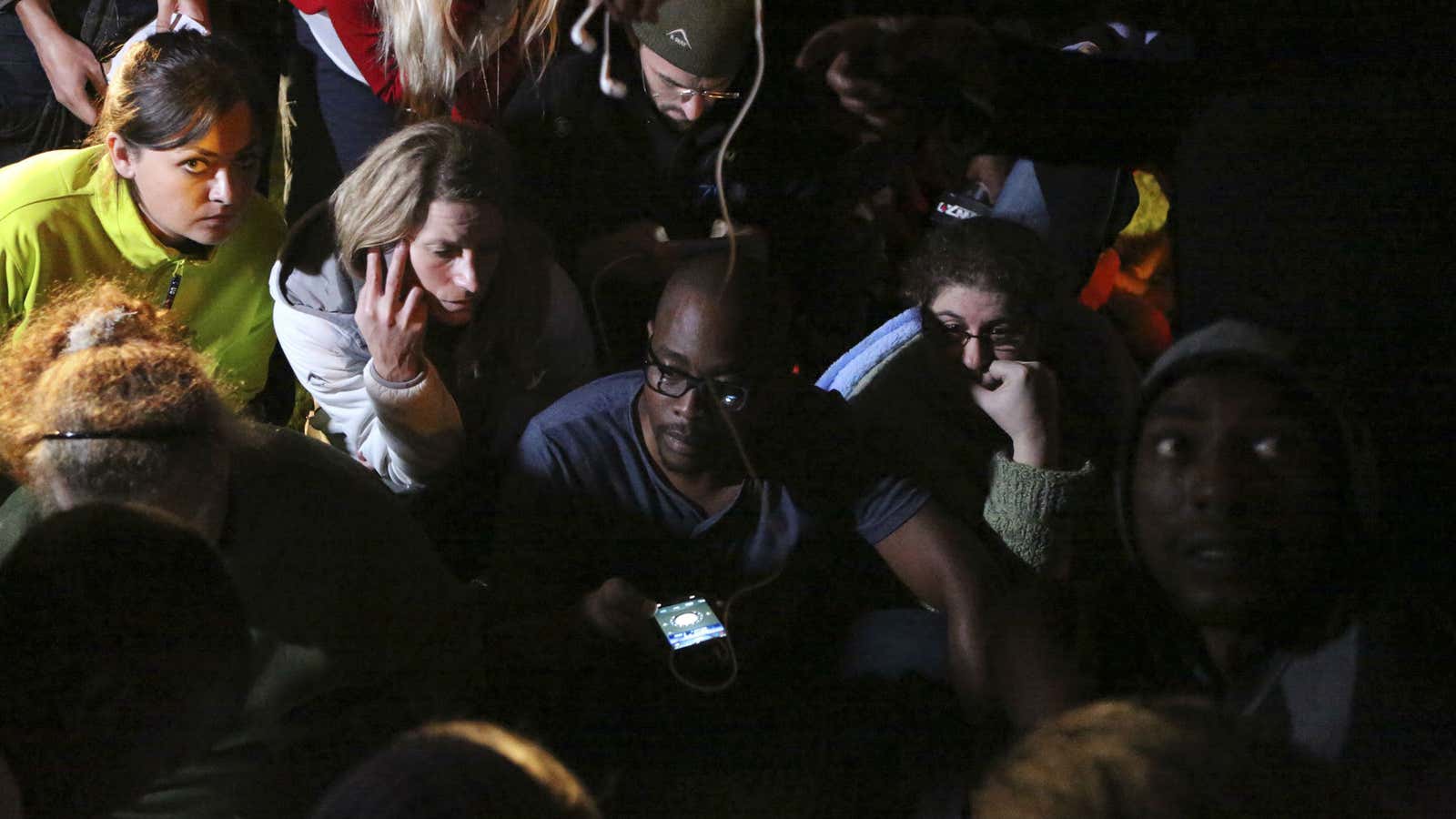South Africa, once on the economic fast track, has been hobbled by political and social divisions over the past few years.
Now what? The death of former president Nelson Mandela raises questions about the country’s direction and the persistence of inequality.
At a bar on Long Street in Cape Town, two black lawyers said Mandela inspired them to study law, but the work he began remains unfinished. ”Apartheid didn’t end,” Sibonelo Ndlovu, 35, told Quartz. “Liberation gave us an opportunity as Africans to negotiate a better reality for ourselves and our descendants. But apartheid continues today albeit without whippings of Africans in the streets, without the violence, without the power of the state.”
South Africa has been plagued by strikes—last year in the mining industry and this year in manufacturing—that have depressed GDP growth significantly. In the third quarter of this year, South Africa’s economy grew just 0.7% from the quarter before, compared to 3.2% growth in the previous quarter amid demands for higher wages to counter inflation. Allegations of corruption within president Jacob Zuma’s administration and by Zuma himself have led to calls for his impeachment. Crime remains rampant.
Young women gathered in another bar on Cape Town’s Bree Street said they were concerned about South Africa’s future. Carla Sedres, 22, a mixed-race student is part of the generation known as “born frees,” because they were born when apartheid ended. She said, “It’s a scary place to be, we don’t know what’s going to happen to the country.”
For now, the country is united in their mourning for Mandela. A diverse crowd quickly gathered outside Mandela’s home in Houghton, Johannesburg early Dec. 6 morning, carrying flags, banners and mementos:
“It feels like it’s my father who has died,” Annah Khokhozela, a 37-year-old nanny in Johannesburg told Reuters. “He was such a good man, who had good values the nation could look up to. He was a role model unlike our leaders of today.”
